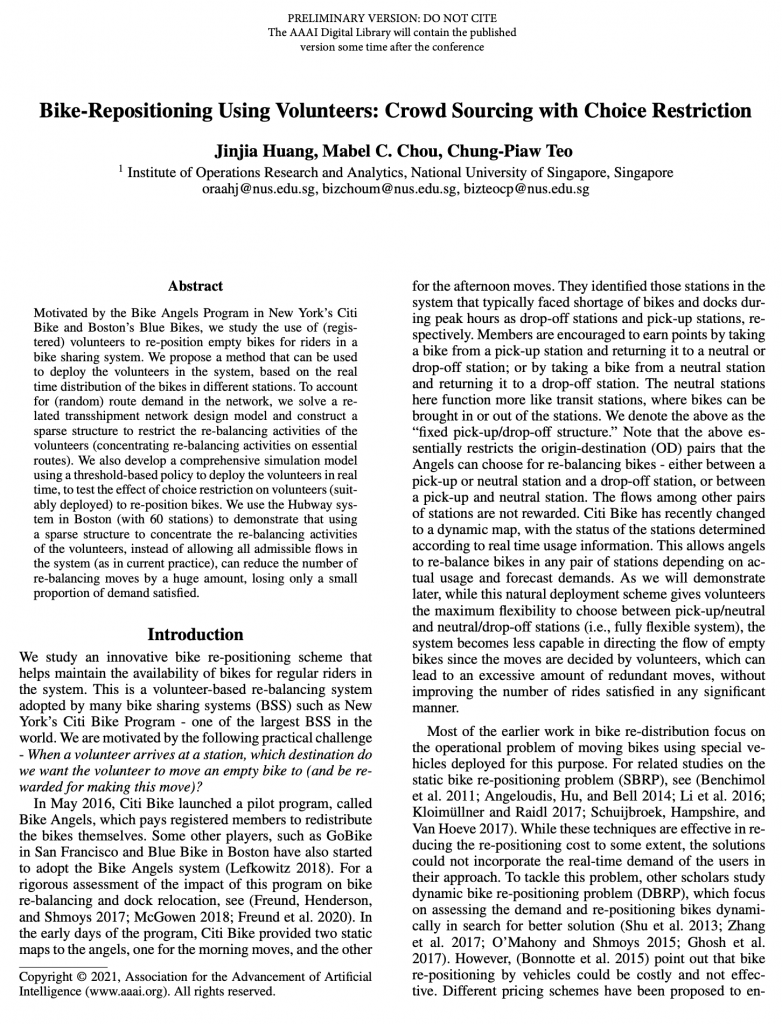Motivated by the Bike Angels Program in New York’s Citi Bike and Boston’s Blue Bikes, we study the use of (registered) volunteers to re-position empty bikes for riders in a bike sharing system. We propose a method that can be used to deploy the volunteers in the system, based on the real time distribution of the bikes in different stations. To account for (random) route demand in the network, we solve a related transshipment network design model and construct a sparse structure to restrict the re-balancing activities of the volunteers (concentrating re-balancing activities on essential routes). We also develop a comprehensive simulation model using a threshold-based policy to deploy the volunteers in real time, to test the effect of choice restriction on volunteers (suitably deployed) to re-position bikes. We use the Hubway system in Boston (with 60 stations) to demonstrate that using a sparse structure to concentrate the re-balancing activities of the volunteers, instead of allowing all admissible flows in the system (as in current practice), can reduce the number of re-balancing moves by a huge amount, losing only a small proportion of demand satisfied.

